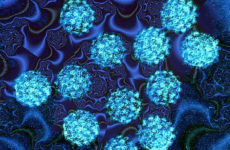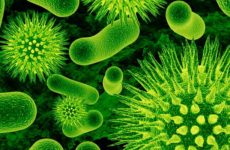Human papillomavirus is one of the most common infections found among many men and women. The main mode of transmission is sexual contact. HPV includes more than 100 varieties.
Most of them are absolutely safe, however, there are types that often provoke the development of cervical cancer. That is why it is very important to protect your body from a possible threat in a timely manner.
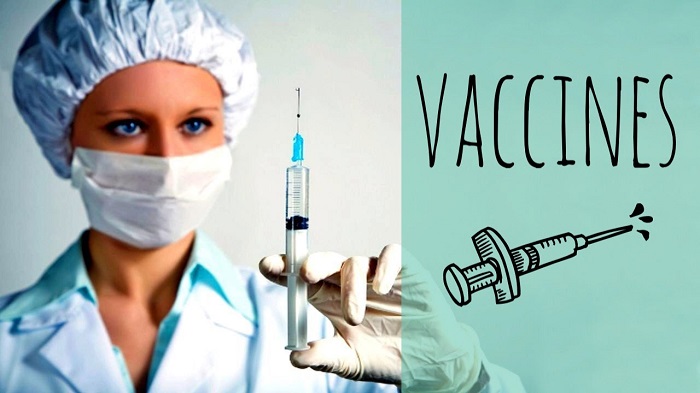
Содержание:
- 1 Principles and goals of vaccination
- 2 Types of vaccines against human papillomavirus infection
- 3 The principle of action of the vaccine against papillomavirus types 16 and 18
- 4 Does an already infected person need a vaccine, all the pros and cons?
- 5 How long does the virus cure last?
- 6 Who should be vaccinated?
- 7 Where is the vaccination done?
- 8 Scheme of implementation and efficiency
- 9 Where is the vaccine given?
- 10 How safe are vaccines?
- 11 The cost of drugs
- 12 The opinion of doctors about the vaccine
Principles and goals of vaccination
At present, an exact treatment regimen has not yet been developed that would completely remove the virus from the blood of an infected person. However, in order to prevent infection, vaccination should be carried out.
So, the HPV vaccine is given for the following purposes:
- for the prevention of cancer;
- to prevent transmission of the virus between sexual partners.
Basic principles of vaccination:
- vaccination is recommended for adolescents before they reach the age of sexual activity;
- The vaccine is given only to healthy people who do not have the virus in their blood.
Types of vaccines against human papillomavirus infection
The entire set of vaccines against this virus is divided into prophylactic, aimed at preventing the disease of papillomatosis, as well as therapeutic, designed to eliminate and remove the virus from the body.
Prophylactic, name of drugs
The most dangerous types of HPV are types 16 and 18, since in most cases they provoke cancer. In this regard, the action of existing vaccines is primarily aimed at preventing infection with these strains.
So, at present, preventive vaccination against HPV includes two types of vaccinations:
- Gardasil – prevents the development of cancerous diseases of the genitals, the appearance of epithelial dysplasia and genital warts caused by HPV 16, 18, as well as types 6 and 11.
- Cervarix – protects the body only from 16 and 18 types of human papillomavirus .
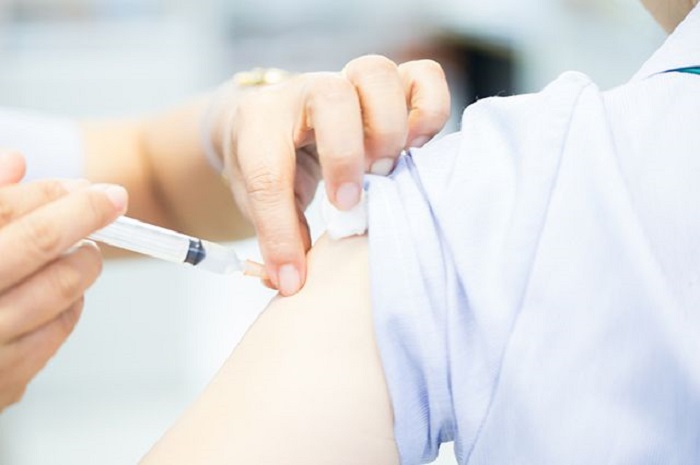
Therapeutic
To date, a therapeutic vaccine against papillomatosis has not been released. It is in the preclinical stage of testing. However, it is possible that in the near future this virus can not only be prevented by vaccination, but also completely removed from an already infected organism.
The principle of action of the vaccine against papillomavirus types 16 and 18
The scheme of action of both types of preventive vaccines (Gardasil and Cervarix) has the following mechanism of action: after completing the full course of vaccination, specific antibodies to HPV types 16 and 18 begin to be produced in the human body, which protects the body from infection.
Does an already infected person need a vaccine, all the pros and cons?
As noted earlier, at the present time there is still no therapeutic vaccination against HPV, which would completely cure the carrier of the virus. At the same time, preventive vaccination against an infected person loses all meaning.
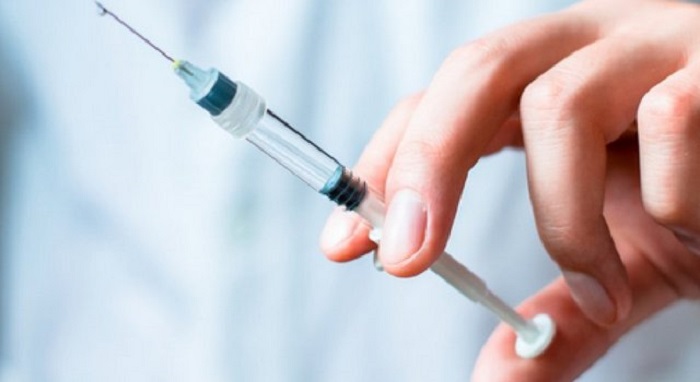
How long does the virus cure last?
It is worth noting that the first HPV vaccine was released in 2006, in connection with which the scientific community did not have enough time to accurately determine the duration of the action of this drug.
However, a study was conducted, during which it was found that the body responds to the attack of the virus even 5 years after vaccination. From this it was concluded that, most likely, the effect of the vaccine will continue 20 years after the introduction of injections.
Who should be vaccinated?
First of all, it is recommended to vaccinate girls and young girls, since HPV types 16 and 18 often cause cancer of the cervix. However, today some countries consider it necessary to make such a vaccine also for the male sex (Russia is not among them).
From what age and up to what age can one get vaccinated?
To achieve the maximum effect of such a vaccination is possible only if it is given to a person who has not previously come into contact with this virus. In this regard, vaccination is given to children aged 9 to 14 years, that is, before the onset of sexual activity.
In addition, it is also recommended to vaccinate sexually active girls under the age of 26.

Why is vaccination recommended for women under 26?
Adolescent girls and young women in their 20s and 30s were found to be at the highest risk of being infected with the human papillomavirus.
Moreover, in most cases, infection occurs immediately after the onset of sexual activity. In this regard, in addition to adolescents, vaccination is also recommended for girls under the age of 26 years. This will prevent the development of cervical cancer, which is especially common at this age.
Vaccination during pregnancy
To date, no controlled studies have been conducted on exactly what effect HPV vaccination has on the body of a pregnant woman.
However, there was also no negative impact on the formation and development of the fetus. However, vaccination against this virus is not recommended during pregnancy.
Where is the vaccination done?
In different cities of Russia there are a large number of vaccination centers where a similar procedure is carried out. In addition, various private clinics also provide this service.

Scheme of implementation and efficiency
As a rule, the following actions are performed before the procedure:
- a general blood test is taken;
- the patient is examined by a gynecologist;
- consultation with a vaccinologist.
In the event that no contraindications have been identified, but then proceed to vaccination. Vaccination against HPV involves the sequential administration of three doses of the drug. An interval of 2 months must be observed between the first and second injection, and 6 months between the second and third.
Where is the vaccine given?
The drug should be administered intramuscularly into the deltoid muscle. Intravenous injection is not allowed.
How safe are vaccines?
As practice shows, vaccination against the human papillomavirus is quite safe and does not cause serious side effects. However, some complications may still occur (more on this below).
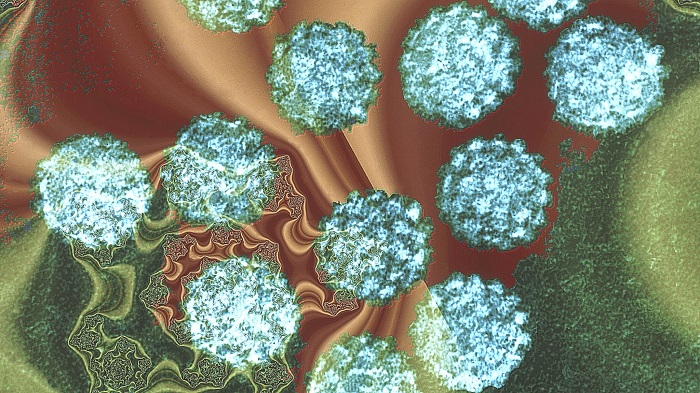
Possible Complications
So, when vaccinating against HPV, the following complications are likely to occur:
- bleeding – if the vaccine was given to a patient who has problems with blood clotting;
- anaphylactic reactions.
Adverse reactions
After completion of vaccination, the following side effects may occur:
- the development of pain at the injection site;
- itching and redness;
- slight swelling;
- headache;
- slight increase in body temperature;
- general weakness.

If Cervarix was introduced, then the following adverse reactions may additionally occur:
- nausea and vomiting;
- diarrhea;
- rash;
- muscle pain;
- development of infections in the upper respiratory tract.
Contraindications
The main contraindications for HPV vaccination include the following:
- individual intolerance to individual components of the vaccine;
- severe reaction of the body to the first injection;
- high body temperature.
The category of relative contraindications includes a violation of blood clotting in a patient. In this case, the main advantages of such vaccination are compared with the risks that it entails.
The cost of drugs
Vaccines against the human papillomavirus are sold in pharmacies strictly by prescription. So, the cost of Cervarix is about 5328 Russian rubles, and Gardasil – 7496 rubles.
The opinion of doctors about the vaccine
Human papillomavirus vaccination is recommended by the World Health Organization. Most medical professionals fully support this position.
For example, N.I. Briko (academician, doctor of medical sciences, chief epidemiologist of the Ministry of Health of the Russian Federation) spoke as follows about the need for HPV vaccination: “Today we are talking about infection with human papillomavirus infection on a global scale. Approximately 12% of the world’s population is already infected with this virus. At the same time, it causes cancer not only of the cervix, but also of the penis, vulva, anus, vagina and oral cavity. Vaccination is the only effective way to fight HPV.”
In conclusion, it is worth noting that in the Russian Federation the HPV vaccination is an optional procedure. However, in some Russian regions, entire programs for the vaccination of children were carried out (for example, in the Moscow and Sverdlovsk regions). It is known that in the Moscow region this program is being successfully implemented at the present time.


